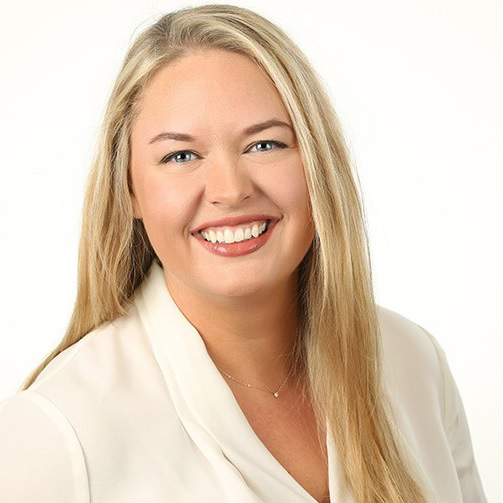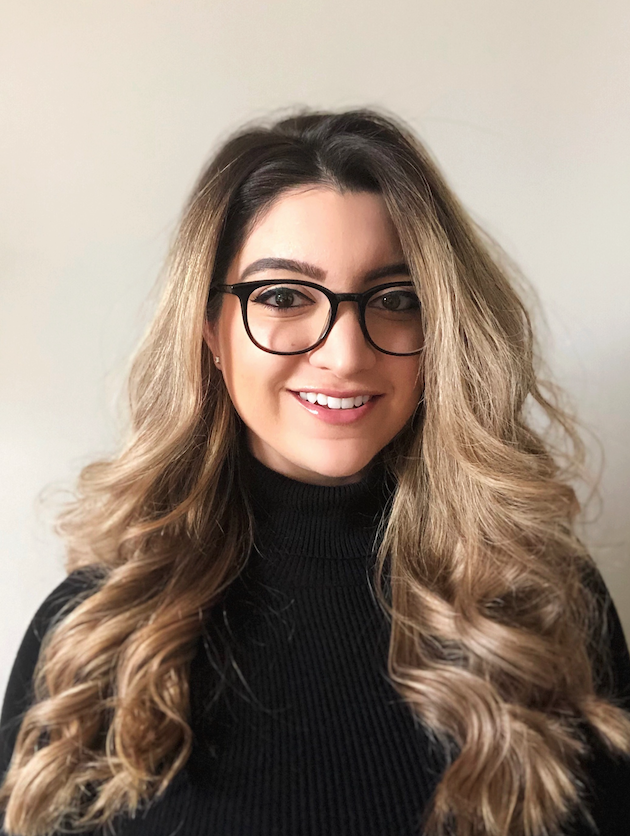Professor Charlotte Tschider joined the Loyola University Chicago School of Law in Fall 2020. She was previously the 2018-2019 Jaharis Faculty Fellow in Health Law and Intellectual Property at the DePaul University College of Law. In 2019-2020, she was an Assistant Visiting Professor at the University of Nebraska School of Law. Her primary scholarship is focused on the global healthcare industry and its intersection with information privacy, cybersecurity law, artificial intelligence, and intellectual property (“IP”). Professor Tschider’s work has appeared in numerous law reviews, the American Bar Association’s The Law of Artificial Intelligence and Smart Machines (2019), and many other publications. More on Professor Tschider’s background and scholarship can be found here.

Prior to her academic career, Professor Tschider had a unique background relating to technology and IP. She served in upper management and consulting roles in information technology, cybersecurity, privacy, and legal compliance. I was in Professor Tschider’s Health Law Business Finance course this semester, and her unique experiences and perspectives with the intersection of healthcare and IP were particularly interesting to me. As a 2L interested in IP, I was curious about how the areas of law that Professor Tschider has experience with relate to IP, and wanted to learn more about this intersection. I recently sat down with Professor Tschider to discuss her career and to ask her what advice she has for current and future law students.
Can you talk a bit about how IP relates to privacy and cybersecurity?
All of these areas are distinct in their goals. Intellectual property law focuses on how to protect an individual or organization’s assets and determine when such assets do not merit protection. Privacy law focuses on protecting the interests of human beings, and informational privacy law focuses on protecting the interests of humans as they are represented by personal information about them. Cybersecurity’s goal is to apply security protocols in relation to data. This could be data that is important to an organization, such as trade secrets, or it could be important to individuals, such as personally identifiable information. As you can see, these areas of law intersect in some ways, but they are truly distinct fields.
Take, for example, a new healthcare technology product, such as a connected insulin pump. The pump has various user features, like a mobile app that enables the user to control how much insulin is delivered. The device’s design and utility will likely be protected through patents. The artificial intelligence behind the system and the processes to create or test it are likely maintained as trade secrets. The personal information from the user is likely subject to healthcare privacy laws. For example, HIPAA requires not only privacy interests be satisfied (such as providing a privacy notice) but also requires application of cybersecurity controls to protect personal information. Furthermore, the Food & Drug Administration will recommend certain cybersecurity controls for the system to ensure the safety of the pump user. A legal expert in IP, cybersecurity, and privacy law will be invaluable for industry sectors like this.
Tell us about your background and how you became interested in IP
After I finished my undergraduate degree, I began my graduate study in rhetoric and scientific and technical communication. My graduate thesis focused on copyright in scientific communication. I was very interested in how scholars communicate their ideas and their motivations behind this communication. While in grad school, I was consulting in information technology and later began working in cybersecurity. It became clear to me that how we use and disclose information can matter a lot to an organization and its customers, for various reasons.
After managing a few information security incidents and working with the legal contracting team at Target Corporation, I realized that most attorneys, even IP attorneys with technical (often scientific) knowledge, did not have the expertise to handle cybersecurity law issues. That’s when I decided to go to law school on the weekends while continuing to work in cybersecurity. I also worked for Brooks, Cameron, and Huebsch, PLLC, a patent law firm, as an externship in my final year of law school. There, I was involved with the patent application process, where I drafted cybersecurity patent applications and prosecuted the patent drafts with the US Patent and Trademark Office (USPTO). Both experiences really put my legal knowledge to work in the highly-specialized intersection of IP and cybersecurity law.
You have quite a unique background with your work experience. How has familiarity with IP law given you flexibility in your career?
IP law is as broad, changing, and challenging as the human mind itself. I utilized this as an opportunity to learn, which led me to work in a wide variety of positions for various companies, and on different technologies. Learning IP law gives you the building blocks to ask the right questions and adapt to many new and complex situations. Even if you are not interested in IP, it can come up in business transactions such as contracts, mergers and acquisitions, compliance, as well as nearly every other sector of the economy. Most attorneys don’t have this specialized knowledge, which gives those who do an edge and flexibility to apply their knowledge in many different fields.
Is there anything you wish you knew in law school that you know now?
I’ll mention a few things, because there is so much!
- The vast majority of professors (and ESPECIALLY professors at Loyola) teach because we love learning and enjoy teaching students. This means that we enjoy spending our time talking about the law. As a student, I wish I had known that professors actually wanted me to connect with them either for class or because I was working on something of interest to them or inline with their expertise. Later in law school, I did this through independent studies and informal requests to review papers I wanted to publish. I wish I had done it sooner—it opened doors and also improved my grades! Also, professors want you to succeed. Our dream is for all of our students write an awesome exam or turn in great papers. It is truly thrilling to see students apply their knowledge.
- Follow your passion. Not every law school class will be your favorite, but I found ways to reframe legal questions in every class in a way where I could study my areas of interest from many different directions. As you can imagine, cybersecurity was not a topic taught when I was in school. So instead, I analyzed cybersecurity problems from the perspective of contracts, torts, criminal law, civil procedure, and even business law classes! Law school teaches you how to think, not just certain subject matter, so make sure to take those classes while finding a way to connect it to your area of interest.
- Create a schedule and stick to it—no exceptions. Law school is uniquely difficult because you are juggling so much: interviews, class, extra projects, clinics, internships, and for many of you, a job. A schedule is a necessity, and sticking to it will ensure you do not fall too far behind while reserving time for the things you need to stay healthy, including time with loved ones, exercise, and mental breaks. Scheduling isn’t the most natural thing, but it will help a lot with time management.
Any last advice for students?
Try to have a little fun with law school. Law school is extremely challenging, but it is also a learning environment. You can learn from colleagues, professors, teaching assistants, and staff. When you are practicing you may work on a team but often have to rely on yourself. Remember you are never alone, and we are here to help. My door (virtual or otherwise) is always open!
Kiana Baharloo
Assistant Blogger
Loyola University Chicago School of Law, JD 2022
